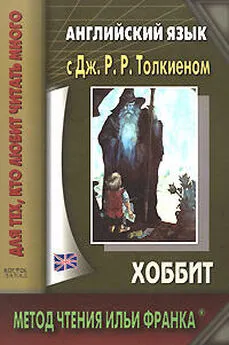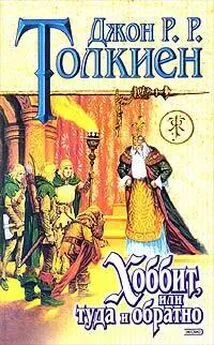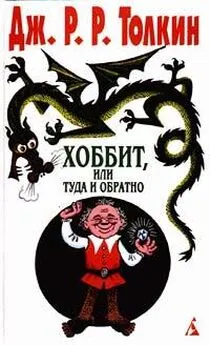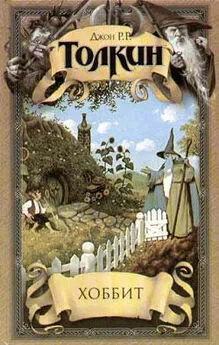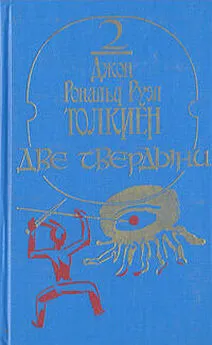Джон Толкиен - Английский язык с Дж. Р. Р. Толкиеном. Хоббит
- Название:Английский язык с Дж. Р. Р. Толкиеном. Хоббит
- Автор:
- Жанр:
- Издательство:АСТ, Восток-Запад
- Год:2008
- Город:Москва
- ISBN:978-5-17-048593-2, 978-5-478-00597-9
- Рейтинг:
- Избранное:Добавить в избранное
-
Отзывы:
-
Ваша оценка:
Джон Толкиен - Английский язык с Дж. Р. Р. Толкиеном. Хоббит краткое содержание
В книге предлагается произведение на английском языке Джона Р. Р. Толкиена «Хоббит», адаптированное (без упрощения текста оригинала) по методу Ильи Франка. Уникальность метода заключается в том, что запоминание слов и выражений происходит за счет их повторяемости, без заучивания и необходимости использовать словарь.
Пособие способствует эффективному освоению языка, может служить дополнением к учебной программе.
Предназначено для студентов, для изучающих английский язык самостоятельно, а также для всех интересующихся английской культурой.
Пособие подготовила Ольга Ламонова.
Английский язык с Дж. Р. Р. Толкиеном. Хоббит - читать онлайн бесплатно полную версию (весь текст целиком)
Интервал:
Закладка:
“To think it will soon be June (подумать только, что скоро июнь), ” grumbled Bilbo (ворчал Бильбо) as he splashed along (в то время как он шлепал; to splash — брызгать, плескать ) behind the others (позади всех остальных) in a very muddy track (по очень грязной колее; track — след, курс, путь ). It was after tea — time (время вечернего чая уже прошло); it was pouring with rain (дождь лил как из ведра), and had been all day (и лил он весь день); his hood was dripping into his eyes (с его капюшона капало прямо в его глаза), his cloak was full of water (его плащ был полон воды); the pony was tired (его пони устал) and stumbled on stones (и спотыкался о камни); the others were too grumpy to talk (остальные были слишком сердиты, чтобы разговаривать). “And I’m sure (и я уверен, что) the rain has got into the dry clothes (что дождь попал и в сухую одежду) and into the food-bags (и в сумки с провизией), ” thought Bilbo (думал Бильбо). “Bother burgling and everything to do with it (к черту /это ремесло/ взломщика и все что с ним связано)! I wish I was at home (как бы я хотел быть дома) in my nice hole by the fire (в моей милой норе, у огня), with the kettle just beginning to sing (и чайник только начинал бы закипать: «петь»)!” It was not the last time (и это был не последний раз) that he wished that (когда он пожелал этого)!
splash [splæʃ] pouring [ˈpɔ: rɪŋ] stumble [ˈstʌmb (ǝ) l] grumpy [ˈɡrʌmpɪ]
Mostly it had been as good as May can be, even in merry tales, but now it was cold and wet. In the Lone-lands they had to camp when they could, but at least it had been dry.
“To think it will soon be June, ” grumbled Bilbo as he splashed along behind the others in a very muddy track. It was after tea-time; it was pouring with rain, and had been all day; his hood was dripping into his eyes, his cloak was full of water; the pony was tired and stumbled on stones; the others were too grumpy to talk. “And I’m sure the rain has got into the dry clothes and into the food-bags, ” thought Bilbo. “Bother burgling and everything to do with it! I wish I was at home in my nice hole by the fire, with the kettle just beginning to sing!” It was not the last time that he wished that!
Still the dwarves jogged on (все же гномы продолжали скакать), never turning round (никогда не оборачиваясь) or taking any notice of the hobbit (и не обращая никакого внимания на хоббита). Somewhere behind the grey clouds (где-то, за серыми тучами) the sun must have gone down (солнце, должно быть, село), for it began to get dark (так как начинало темнеть). Wind got up (поднялся ветер), and the willows along the river-bank (и ивы, /растущие/ вдоль берега реки) bent and sighed (гнулись и шелестели; to sigh — вздыхать, тосковать ). I don’t know what river it was (я не знаю, что за речка это была), a rushing red one (какая-то бурная красная река; rushing — стремительный, порывистый ), swollen with the rains of the last few days (вздувшаяся от дождей последних нескольких дней), that came down from the hills and mountains (которая спускалась с холмов и гор) in front of them (перед ними). Soon it was nearly dark (вскоре стало уже почти темно). The winds broke up the grey clouds (ветер разогнал серые тучи; to break (broke, broken) — ломать, разрывать ), and a waning moon (и ущербная луна; to wane — убывать, быть на ущербе /о Луне/ ) appeared above the hills (появилась над холмами) between the flying rags (между летящими по небу клочками /облаков/).
jog [dʒɔɡ] notice [ˈnǝʋtɪs] appear [ǝˈpɪǝ]
Still the dwarves jogged on, never turning round or taking any notice of the hobbit. Somewhere behind the grey clouds the sun must have gone down, for it began to get dark. Wind got up, and the willows along the river-bank bent and sighed. I don’t know what river it was, a rushing red one, swollen with the rains of the last few days, that came down from the hills and mountains in front of them. Soon it was nearly dark. The winds broke up the grey clouds, and a waning moon appeared above the hills between the flying rags.
Then they stopped (тогда они остановились), and Thorin muttered something about supper (и Торин пробормотал что-то об ужине), “and where shall we get a dry patch to sleep on (и где бы нам достать сухой клочок /земли/ на котором поспать)?” Not until then (и только тогда: «не до тех пор») did they notice (они обратили внимание) that Gandalf was missing (что Гэндальфа с ними не было; to miss — зд. недоставать, отсутствовать ). So far (до этого) he had come all the way with them (он проехал весь путь вместе с ними), never saying (не говоря) if he was in the adventure (был ли он /вместе с ними/ в этом приключении) or merely keeping them company for a while (или просто составлял им компанию на некоторое время). He had eaten most (он ел больше всех), talked most (разговаривал больше всех), and laughed most (и смеялся больше всех). But now he simply was not there at all (но теперь его попросту не было, совсем)!
“Just when (как раз в тот момент, когда) a wizard would have been most useful (волшебник был бы как нельзя кстати; useful — полезный, пригодный ), too (к тому же), ” groaned Dori and Nori (простонали Дори и Нори) (who shared the hobbit’s views about regular meals (которые разделяли взгляды хоббита на регулярные приемы пищи), plenty and often (обильные и частые)). They decided in the end (они решили наконец) that they would have to camp (что им придется разбить лагерь) where they were (там, где они /как раз/ находились).
laugh [lɑ: f] useful [ˈju: sf (ǝ) l] shared [ʃeǝd] regular [ˈreɡjʋlǝ]
Then they stopped, and Thorin muttered something about supper, “and where shall we get a dry patch to sleep on?” Not until then did they notice that Gandalf was missing. So far he had come all the way with them, never saying if he was in the adventure or merely keeping them company for a while. He had eaten most, talked most, and laughed most. But now he simply was not there at all!
“Just when a wizard would have been most useful, too, ” groaned Dori and Nori (who shared the hobbit’s views about regular meals, plenty and often). They decided in the end that they would have to camp where they were.
So far (до сих пор) they had not camped before on this journey (они еще не разбивали лагеря в этом путешествии), and though they knew (и, хотя они и знали) that they soon would have to camp regularly (что скоро им придется разбивать лагерь регулярно), when they were among the Misty Mountains (когда они окажутся в Мглистых Горах) and far from the lands of respectable people (и далеко от земель порядочных людей), it seemed a bad wet evening to begin on (этот вечер казался плохим и сырым для начала /устройства лагеря/). They moved to a clump of trees (они подвинулись к рощице /деревьев/; clump — заросли; слипшаяся масса; глыба, ком ), and though it was drier under them (и хотя под ними было суше), the wind shook the rain off the leaves (ветер стряхивал /капли/ дождя с листьев), and the drip, drip, was most annoying (и шум падающих капель: «кап-кап» был очень раздражающим; to annoy — досаждать; докучать, надоедать, раздражать ). Also the mischief seemed to have got into the fire (также казалось, что какая-то беда случилась с огнем; mischief — вред, зло; озорство ). Dwarves can make a fire almost anywhere (гномы могут развести огонь почти что везде) out of almost anything (почти что из всего), wind or no wind (/не зависимо от того/ дует ветер или нет); but they could not do it that night (но они не могли развести его той ночью), not even Oin and Gloin (даже Ойн и Глойн не могли), who were specially good at it (которые были особенно хороши по этой части: «в этом»).
Then one of the ponies (затем один из пони) took fright at nothing (испугался неизвестно чего) and bolted (и понес). He got into the river (он ускакал прямо в реку) before they could catch him (до того, как они смогли поймать его); and before they could get him out again (и до того, как они снова смогли его оттуда вытащить), Fili and Kili were nearly drowned (Фили и Кили чуть не утонули), and all the baggage that he carried (и вся поклажа, которую он /пони/ вез) was washed away off him (была смыта с него /рекой/). Of course it was mostly food (конечно же это была по большей части провизия), and there was mighty little left for supper (и в результате чрезвычайно мало /еды/ осталось на ужин), and less for breakfast (и еще меньше на завтрак).
journey [ˈdʒǝ: nɪ] mischief [ˈmɪstʃɪf] fright [fraɪt]
So far they had not camped before on this journey, and though they knew that they soon would have to camp regularly, when they were among the Misty Mountains and far from the lands of respectable people, it seemed a bad wet evening to begin, on. They moved to a clump of trees, and though it was drier under them, the wind shook the rain off the leaves, and the drip, drip, was most annoying. Also the mischief seemed to have got into the fire. Dwarves can make a fire almost anywhere out of almost anything, wind or no wind; but they could not do it that night, not even Oin and Gloin, who were specially good at it.
Читать дальшеИнтервал:
Закладка:
